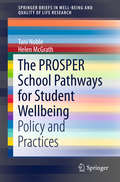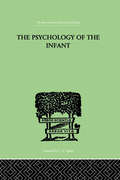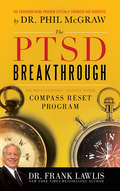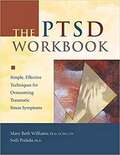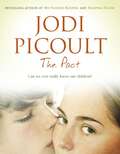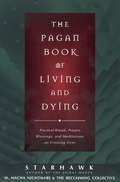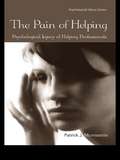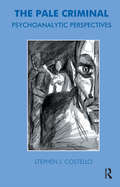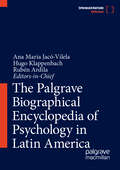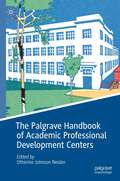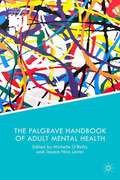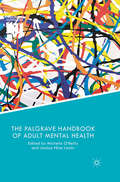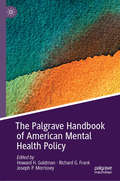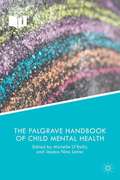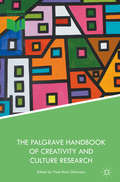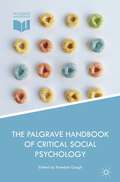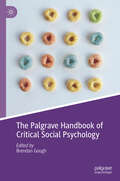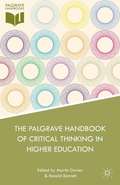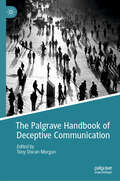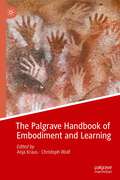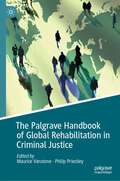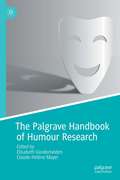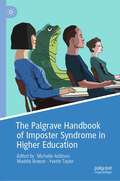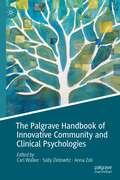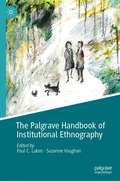- Table View
- List View
The PROSPER School Pathways for Student Wellbeing
by Helen Mcgrath Toni NobleThis brief defines student wellbeing and outlines seven evidence-informed pathways that schools can take to promote student wellbeing and develop their school as an enabling institution. The acronym PROSPER is applied as an organizer for both the psychological elements of wellbeing and for these Positive Education pathways. These pathways focus on encouraging Positivity, building Relationships, facilitating Outcomes and a sense of competence, focusing on Strengths, fostering a sense of Purpose, enhancing Engagement and teaching Resilience. Each pathway draws on both the principles of positive psychology and the educational research that identifies the impact of each pathway for student learning. The benefits of a school-wide focus on student wellbeing for student engagement in learning and their success in school and in life are outlined. Practical guidelines for the development and implementation of educational policy that has student wellbeing as its central focus are also provided.
The PSYCHOLOGY OF THE INFANT (International Library Of Psychology Ser. #Vol. 2)
by Bernfeld, SiegfriedFirst Published in 1999. Routledge is an imprint of Taylor & Francis, an informa company.
The PTSD Breakthrough: The Revolutionary, Science-Based Compass RESET Program
by Frank Lawlis<p>We are facing a hidden and growing epidemic. More than a million veterans and everyday citizens have been affected with Post Traumatic Stress Disorder as a result of a traumatic event or personal experience. And until now, there has been little understanding of how the disorder truly takes hold and how to reverse its destruction. Finally, a breakthrough approach has been discovered. <p>Previously PTSD was treated as a psychiatric disorder only, but new scientific research shows that biological factors play just as an important of a role, specifically brain and soft-tissue damage underlying the root causes of the disorder. The PTSD Breakthrough is the first book to describe the true causes of PTSD and provide an effective program for overcoming the disorder. There is hope. <p>Through the research conducted by Dr. Lawlis and his colleagues, for the first time those who suffer from PTSD, as well as their families and loved ones, will discover that this disorder can be treated and healed, and that our veterans and all who suffer from PTSD can regain true peace in their lives. </p>
The PTSD Workbook: Simple, Effective Techniques for Overcoming Traumatic Stress Symptoms (Workbook Series)
by Mary Beth Williams Lasse A. Nurmi Soili PoijulaIn The PTSD Workbook, two psychologists and trauma experts gather together techniques and interventions used by PTSD experts from around the world to offer trauma survivors the most effective tools available to conquer their most distressing trauma-related symptoms. Readers learn how to determine the type of trauma they experienced, identify their symptoms, and learn the most effective strategies they can use to overcome them.
The Pact
by Jodi PicoultPerfect for fans of Gillian Flynn's Sharp Objects and Alice Sebold's The Lovely Bones, Number One bestselling author Jodi Picoult returns with the deeply moving THE PACT.When Chris wakes up in hospital, Emily is the first person he asks for. She is the love of his life. But Emily is dead, and Chris is the sole witness to what happened in the park that night.He claims it was a suicide pact: they were both meant to die.Then the investigation turns up motive for murder, and there is only one suspect . . .(P)2006 Hodder & Stoughton Audiobooks
The Pagan Book of Living and Dying: Practical Rituals, Prayers, Blessings, and Meditations on Crossing Over
by Starhawk M. Macha Nightmare The Reclaiming CollectiveRituals and resources for honoring death in the circle of life, that forms the underlying order of the universe, the core of the Pagan belief system.
The Pain of Helping: Psychological Injury of Helping Professionals (Psychosocial Stress Series)
by Patrick J. MorrissetteThe purpose of The Pain of Helping is to provide a source that identifies, condenses, and consolidates information pertaining to psychological injury. In addition to providing details regarding construct definition, information pertaining to symptomatology, assessment instruments (e.g. structured interview, questionnaires), treatment options, leading theoreticians, journals, books, and web sites are also included. This book will serve as a primary source and directory for additional information pertaining to psychological injury. To date, there has not been a concerted effort to synthesize and consolidate the literature of psychological injury and present this valuable information in a systematic and methodological fashion.
The Pale Criminal: Psychoanalytic Perspectives
by Stephen J. CostelloIt was Freud, borrowing Nietszche's phrase from Thus Spake Zarathustra, who described as 'pale criminals' those who committed criminal acts out of deep-lying (unconscious) guilt. The focus of this challenging and penetrating study is on this type of criminality. The book bring sa 'unifying vision and theoretical integration' to the array of perspectives and theories in this field. He draws together for the first time the thoughts on the subject of Sigmund Freud, Carl Jung, Melanie Klein, Donald Winnicott and Jacques Lacan, examines the contributions of both orthodox and evolutionary psychiatry, and explores the role of family experience in shaping the 'pale criminal'. The result is an ambitious theory of criminality; a depth-psychological psychoanalytic model of the human being.In the early chapters, the aurthor provides a judicious and even-handed exposition of his chosen thinkers' views, before proceeding to an impressive and well-argued dialectical synthesis in which each theoretical perspective is used to correct, qualify or supplement the others. In a diffuse and divided field, this volume should provide an indispensable source of clarification and a stimulus to open creative debate.
The Palgrave Biographical Encyclopedia of Psychology in Latin America
by Rubén Ardila Ana Maria Jacó-Vilela Hugo KlappenbachThis biographical encyclopedia will provide the first comprehensive reference work on leading scholars and professionals who have contributed to the development and institutionalization of psychology in Latin America. The figures biographed will include scholars who have made a significant theoretical contribution to the discipline, as well as, practitioners and those who have contributed to the institutionalization of psychology, through their work in scientific organisations, professional bodies and publications. All persons included are recognized authorities and either natives of, or long-term residents in the region. It will offer an invaluable reference point, in particular for scholars of the history of psychology, Latin American studies, the history of science, and global psychology; as well as for historians, psychologists and social scientists seeking international perspectives on the development of the discipline.
The Palgrave Handbook of Academic Professional Development Centers (Palgrave Studies on Leadership and Learning in Teacher Education)
by Otherine Johnson NeislerThis handbook provides a global overview of the design, implementation and assessment of academic development centers within higher education institutions. The current nature of our complex, rapidly changing world makes it imperative that colleges and universities worldwide find ways to educate their students in new and better ways: this is reflected in a change in focus from teaching and testing to maximizing student learning in line with the core mission of ADCs to ensure students achieve the best possible learning outcomes. This handbook builds on this transformation, as well as the foundational ADC structure and programming guidelines established by the Professional and Organizational Development Network, to offer a comprehensive exploration of professional development in the sector. This handbook is global in scale and comprehensive in scope, addressing various key topics such as organizational structure and leadership, funding, and program design. It calls for professors and academics to reflect on and adapt their methods of teaching independent to their research, and provides helpful frameworks and case studies for researchers designing centers or seeking models for additional programs.
The Palgrave Handbook of Adult Mental Health (Discourse and Conversation Studies)
by Michelle O'Reilly Jessica Nina LesterThis Handbook gathers together empirical and theoretical chapters from leading scholars and clinicians to examine the broad issue of adult mental health. The contributors draw upon data from a variety of contexts to illustrate the multiple ways in which language as action can assist us in better understanding the discursive practices that surround adult mental health. Conversation and discourse analysis are useful, related approaches for the study of mental health conditions, particularly when underpinned by a social constructionist framework. In the field of mental health, the use of these two approaches is growing, with emergent implications for adults with mental health conditions, their practitioners, and/or their families. Divided into four parts; Reconceptualising Mental Health and Illness; Naming, Labelling and Diagnosing; The Discursive Practice of Psychiatry; and Therapy and Interventions; this Handbook provides a comprehensive overview of current debates regarding adult mental health.
The Palgrave Handbook of Adult Mental Health: Discourse And Conversation Studies
by Jessica Nina Lester Michelle O�ReillyThis Handbook gathers together empirical and theoretical chapters from leading scholars and clinicians to examine the broad issue of adult mental health. The contributors draw upon data from a variety of contexts to illustrate the multiple ways in which language as action can assist us in better understanding the discursive practices that surround adult mental health. Conversation and discourse analysis are useful, related approaches for the study of mental health conditions, particularly when underpinned by a social constructionist framework. In the field of mental health, the use of these two approaches is growing, with emergent implications for adults with mental health conditions, their practitioners, and/or their families.Divided into four parts; Reconceptualising Mental Health and Illness; Naming, Labelling and Diagnosing; The Discursive Practice of Psychiatry; and Therapy and Interventions; this Handbook provides a comprehensive overview of current debates regarding adult mental health.
The Palgrave Handbook of American Mental Health Policy
by Howard H. Goldman Richard G. Frank Joseph P. MorrisseyThis handbook is the definitive resource for understanding current mental health policy controversies, options, and implementation strategies. It offers a thorough review of major issues in mental health policy to inform the policy-making process, presenting the pros and cons of controversial, significant issues through close analyses of data. Some of the topics covered are the effectiveness of various biomedical and psychosocial interventions, the role of mental illness in violence, and the effectiveness of coercive strategies. The handbook presents cases for conditions in which specialized mental health services are needed and those in which it might be better to deliver mental health treatment in mainstream health and social services settings. It also examines the balance between federal, state, and local authority, and the financing models for delivery of efficient and effective mental health services. It is aimed for an audience of policy-makers, researchers, and informed citizens that can contribute to future policy deliberations.
The Palgrave Handbook of Child Mental Health
by Jessica Nina Lester Michelle O�reillyThis Handbook illustrates the importance of examining child mental health from a different perspective, one that assumes that psychiatric categories are made real in and through both written and spoken language. It gathers a range of applied and theoretical analyses from leading scholars and clinicians in order to examine the conversational practices of children diagnosed with mental health disorders alongside those of their parents, families and practitioners. The contributors move away from viewing mental illness as an objective truth; instead reintroducing the relevance of language in constructing and deconstructing the assumptions that surround the diagnosis and treatment of childhood mental health disorders. Including chapters on ADHD, autism, depression, eating disorders and trauma, this collection addresses the diversity involved in discussing child mental health. Divided into six parts: the place of conversation/discourse analysis; critical approaches; social constructions of normal/abnormal; situating and exploring the difficulties involved; managing problem behaviour and discussing different practices involved; this Handbook presents a comprehensive overview of child mental health. It is an essential reference resource for all those involved or interested in child mental health.
The Palgrave Handbook of Creativity and Culture Research
by Vlad Petre GlăveanuThis groundbreaking Handbook brings together leading international experts in creativity and culture research to provide an overview of current debates. It also showcases the the wealth of topics, approaches and definitions involved with the interdisciplinary topic of creativity research. The theoretical and methodological innovations emerging from the joint study of creativity and culture highlight the role of creativity within today's innovation-based, multicultural societies. Drawing on case studies from Scandinavia, Europe, Asia and Africa, this Handbook provides a truly global outlook on current creativity research within an emergent, interdisciplinary field. This variety is highlighted by the Handbook's structure as it is divided into five sections; Creativity and Culture in the Psychology of Creativity; Creativity in Socio-Cultural Psychology; Creativity in Cultural Context; Creativity and Culture in Applied Domains; Cross-disciplinary Perspectives on Creativity and Culture. These sections provide a clear overview of the debates and questions as the contributors share their interest in creativity, not only as an individual but also a social and cultural phenomenon and in culture as both foundation and outcome of creative action. The Handbook will be an essential resource for researchers, particularly those based in social science and humanities disciplines.
The Palgrave Handbook of Critical Social Psychology
by Brendan GoughThis handbook is the first to bring together the latest theory and research on critical approaches to social psychological challenges. Edited by a leading authority in the field, this volume further establishes critical social psychology as a discipline of study, distinct from mainstream social psychology. The handbook explains how critical approaches to social processes and phenomena are essential to fully understanding them, and covers the main research topics in basic and applied social psychology, including social cognition, identity and social relations, alongside overviews of the main theories and methodologies that underpin critical approaches.This volume features a range of leading authors working on key social psychological issues, and highlights a commitment to a social psychology which shuns psychologisation, reductionism and neutrality. It provides invaluable insight into many of the most pressing and distressing issues we face in modern society, including the migrant and refugee crises affecting Europe; the devaluing of black lives in the USA; and the poverty, ill-health, and poor mental well-being that has resulted from ever-increasing austerity efforts in the UK. Including sections on critical perspectives, critical methodologies, and critical applications, this volume also focuses on issues within social cognition, self and identity. This one-stop handbook is an indispensable resource for a range of academics, students and researchers in the fields of psychology and sociology, and particularly those with an interest in social identity, power relations, and critical interventions.
The Palgrave Handbook of Critical Social Psychology
by Brendan GoughThis handbook is the second edition of a highly cited and impactful collection, which was the first to bring together the latest theory and research on critical approaches to social psychological challenges. Edited by a leading authority in the field, the volume helped to establish critical social psychology as a discipline of study, distinct from mainstream social psychology. The book helps to explain how critical approaches to social processes and phenomena are essential to fully understanding them and covers the main research topics in basic and applied social psychology, including social cognition, identity and social relations, alongside overviews of the main theories and methodologies that underpin critical approaches. This second edition adds four new chapters – from two UK authors, one US and one from New Zealand - on the subjects of Indigenous Psychologies, Māori communities, Deleuze and arts-based research. It also adds a new introduction from the editor. This volume features a range of leading authors working on key social psychological issues, and highlights a commitment to a social psychology which shuns psychologisation, reductionism and neutrality. It provides invaluable insight into many of the most pressing and distressing issues we face in modern society, including the migrant and refugee crises affecting Europe; the devaluing of black lives in the USA; and the poverty, ill-health, and poor mental well-being that has resulted from ever-increasing austerity efforts in the UK. Including sections on critical perspectives, critical methodologies, and critical applications, this volume also focuses on issues within social cognition, self and identity. This one-stop handbook is an indispensable resource for a range of academics, students and researchers in the fields of psychology and sociology, and particularly those with an interest in social identity, power relations, and critical interventions.
The Palgrave Handbook of Critical Thinking in Higher Education
by Martin Davies Ronald BarnettPalgrave Handbook of Critical Thinking in Higher Education explores critical thinking in higher education in all its forms, from definitions to teaching and incorporating it into the curriculum, its relationship to culture and the professions, and its social perspectives and scientific and cognitive manifestations. Davies and Barnett ask what is critical thinking, especially in the context of higher education? The handbook explores these questions, with contributors offering their insight into the contemporary understandings of higher education worldwide.
The Palgrave Handbook of Deceptive Communication
by Tony Docan-MorganDeception and truth-telling weave through the fabric of nearly all human interactions and every communication context. The Palgrave Handbook of Deceptive Communication unravels the topic of lying and deception in human communication, offering an interdisciplinary and comprehensive examination of the field, presenting original research, and offering direction for future investigation and application. Highly prominent and emerging deception scholars from around the world investigate the myriad forms of deceptive behavior, cross-cultural perspectives on deceit, moral dimensions of deceptive communication, theoretical approaches to the study of deception, and strategies for detecting and deterring deceit. Truth-telling, lies, and the many grey areas in-between are explored in the contexts of identity formation, interpersonal relationships, groups and organizations, social and mass media, marketing, advertising, law enforcement interrogations, court, politics, and propaganda. This handbook is designed for advanced undergraduate and graduate students, academics, researchers, practitioners, and anyone interested in the pervasive nature of truth, deception, and ethics in the modern world.
The Palgrave Handbook of Embodiment and Learning
by Christoph Wulf Anja KrausThis handbook provides an important overview of corporeality, embodiment and learning in education from both theoretical and empirical perspectives. Situating the body at the centre of educational practice, the editors and contributors introduce the concept of ‘tact’ as a practical corporeal language. The chapters provide a spectrum of historical, conceptual, empirical and practical educational approaches for embodied pedagogical engagement. Tact and embodied knowledge form a significant component of a teacher’s capability and professionalism: interacting with students, a pedagogue responds to them tactfully, emotionally, sensitively, and reflectively searching for the right thing to do, the right words to say, improvising in aural, linguistic, spatial, and visual way that are as restrained as they are enabled by the body. This handbook questions the familiar and established essentialist and naturalist view of the body to allow new perspectives on how corporeality affects learners. It will be of interest to scholars in education and philosophy as well as those researching in across social sciences.
The Palgrave Handbook of Global Rehabilitation in Criminal Justice
by Maurice Vanstone Philip PriestleyThis handbook provides a unique overview of rehabilitation as practiced internationally in criminal justice. Through the contributions of a diverse group that includes, among others, academics (some of whom are former practitioners), research students, a judge, and a probation chief, it reflects common features of criminal justice in different countries and documents their diversity and celebrates their vitality. In recent times the idea of ‘law and order’ has been expropriated by populist, authoritarian and doctrinaire regimes, almost always and nearly everywhere in the service of arbitrary and unjust rule. By and large this handbook does not include such regimes. But ‘law’ itself also has the capacity to constrain rulers, and ‘order’ in the form of social peace is a universally approved civic asset. In part, the book provides a counter-narrative demonstrating that although criminal justice dispositions such as probation, prisons, and parole can be represented as a ‘via dolorosa’, rehabilitation as illustrated in these pages can become a journey that leads by degrees towards the possibility of a better life. The handbook will be of interest to students, academics, practitioners, managers, policy makers and all those who wish to gain insight into the why and the how of rehabilitation in criminal justice systems across the world.
The Palgrave Handbook of Humour Research
by Elisabeth Vanderheiden Claude-Hélène MayerThis Handbook provides new perspectives on humour from transdisciplinary perspectives. It focuses on humour as a resource from different socio-cultural and psychological viewpoints and brings together authors from different cultures, social contexts and countries.The book will enable researchers and practitioners alike to unlock new research findings which give new directions for contemporary and future humour research. By employing transdisciplinary and transcultural perspectives, the volume further discusses humour in regard to different cultural and political contexts, humour over the lifespan, in therapy and counselling, in pedagogical settings, in medicine and the workspace. The contributions also highlight the connections between humour and the COVID-19 pandemic and promise new inspiring insights. Researchers, practitioners and students in the fields of industrial and organisational psychology, positive psychology, organisational studies, future studies, health and occupational science and therapy, emotion sciences, management, leadership and human resource management will find the contributions highly topical, insightful and applicable to practice.
The Palgrave Handbook of Imposter Syndrome in Higher Education
by Michelle Addison Yvette Taylor Maddie BreezeThis handbook explores feeling like an ‘imposter’ in higher education and what this can tell us about contemporary educational inequalities. Asking why imposter syndrome matters now, we investigate experiences of imposter syndrome across social locations, institutional positions, and intersecting inequalities. Our collection queries advice to fit-in with the university, and authors reflect on (not)belonging in, with and against educational institutions. The collection advances understandings of imposter syndrome as socially situated, in relation to entrenched inequalities and their recirculation in higher education. Chapters combine creative methods and linger on the figure of the ‘imposter’ - wary of both individualising and celebrating imposters as lucky, misfits, fraudsters, or failures, and critically interrogating the supposed universality of imposter syndrome.
The Palgrave Handbook of Innovative Community and Clinical Psychologies
by Carl Walker Sally Zlotowitz Anna ZoliThis handbook highlights a range of ground breaking, radical and liberatory clinical and critical community psychology projects from around the world. The disciplines of critical community psychology and clinical psychology are currently experiencing radical innovations that in this book are characterised as moving from the individualising practice realm toward an altogether more contextualising orientation. Both fields are responding to an array of political, social and economic injustices and a global political context. Community and clinical psychologists have found themselves reorienting their practice to confront, resist and subvert the structures that are so damaging to the lives of the vulnerable people they work with. This text posits that these approaches refute and resist the psychologising that has strengthened oppressive structures. Such practices are starting to engage in the political character of power-knowledge relationships that demand a more ‘action-oriented’ and less ‘clinical’ psychology praxis and there is a growing interest in, and commitment to, social justice in the field of mental wellbeing. Using examples of scholar, activist and practitioner work from around the world, this collection explores and documents those practices where the traditional remits of community and clinical psychology have been subverted, altered, stretched, changed and reworked in order to reframe practice around human rights, creativity, political activism, social change, space and place, systemic violence, community transformation, resource allocation and radical practices of disruption and direct action.
The Palgrave Handbook of Institutional Ethnography
by Paul C. Luken Suzanne VaughanA comprehensive guide to the alternative sociology originating in the work of Dorothy E. Smith, this Handbook not only explores the basic, founding principles of institutional ethnography (IE), but also captures current developments, approaches, and debates. Now widely known as a “sociology for people,” IE offers the tools to uncover the social relations shaping the everyday world in which we live and is utilized by scholars and social activists in sociology and beyond, including such fields as education, nursing, social work, linguistics, health and medical care, environmental studies, and other social-service related fields. Covering the theoretical and methodological underpinnings of IE, recent developments, and current areas of research and application that have yet to appear in the literature, The Palgrave Handbook of Institutional Ethnography is suitable for both experienced practitioners of institutional ethnography and those who are exploring this approach for the first time.
